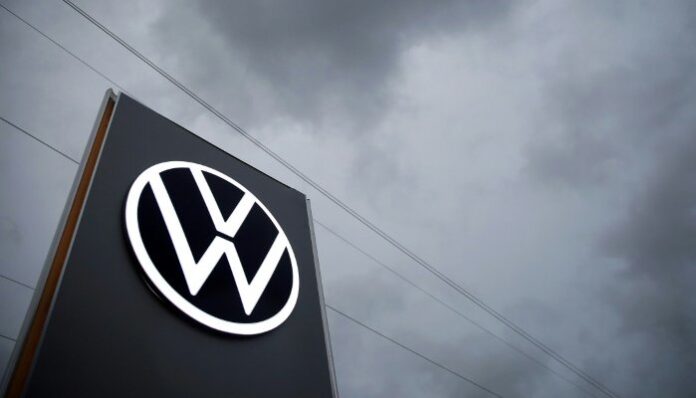BEIJING: Volkswagen, the German car company, said Friday it will invest around €2 billion ($2.2 billion) in two Chinese companies in the electric vehicle sector, calling it “the world’s biggest market”.
The German car giant said it will take a 50% stake in JAG — the parent company of state-owned JAC Motors — and increase its holding in the JAC Volkswagen joint venture from 50-75% for around €1 billion. The group said in a statement that “by gaining management control, Volkswagen is paving the way for more electric models and infrastructure”. It will also buy a 26% share of Chinese battery supplier Gotion High-Tech for €1.1 billion.
China, which accounts for 40% of Volkswagen’s sales, has become the world’s largest auto market in recent years, with Beijing repeatedly pledging to support the electric vehicle industry. Volkswagen said it expects to sell around 1.5 million new energy vehicles in the country annually by 2025.
China’s industry ministry said in December the country should seek to ensure one in four of all vehicles sold in 2025 were either hybrids or fully-electric vehicles. And Beijing decided in late March to extend the tax exemption for the purchase of electric vehicles by two years. Car sales in China began to slide in 2018 and plunged further when the coronavirus pandemic paralysed the economy, but they have rebounded as the country appears to have brought the virus under control.
The JAG investment is the first time the German carmaker will take “a strategic role in a state-owned company”, Volkswagen China CEO Stephan Woellenstein said in a statement. China typically requires foreign automakers to forge joint ventures with domestic firms when establishing manufacturing plants, which means sharing profits and technology with local partners.
But Beijing announced in 2018 that it would end a previous 50% cap on foreign auto firms’ ownership of new energy vehicle joint ventures with local companies, while US electric car manufacturer Tesla opened a wholly-owned Shanghai factory last year.
Volkswagen does not intend to “throw away” its electric car venture with JAC, which launched in 2017, because of the advantage of having a “Chinese partner who understands the country”, Woellenstein told reporters in a conference call Friday.
The lifting of coronavirus lockdowns in China has given the stuttering auto industry a jumpstart, with sales rising for the first time in two years as buyers return as the health crisis eases and restrictions on travel and businesses are lifted.Sales rose 4.4% year-on-year in April, according to figures from the China Association of Automobile Manufacturers, driven by strong demand for commercial vehicles, which soared more than 30%.
Woellenstein said May sales in the country could meet last year’s level for the same month, and that the carmaker is currently “more optimistic” about the Chinese market’s recovery. However, the global car industry faces an existential crisis from the coronavirus pandemic, which has caused sales to plunge as governments forced citizens to stay at home to slow the spread of the virus. The Volkswagen announcement came as French automaker announced 15,000 job losses worldwide, and a day after Japanese automaker Nissan reported a huge $6.2 billion annual net loss.
Nissan, already battling weak demand as well as the fallout from the arrest of former boss Carlos Ghosn, said the global outbreak had hit all aspects of its business. Nissan said it will shut its Barcelona plant and slash production.




